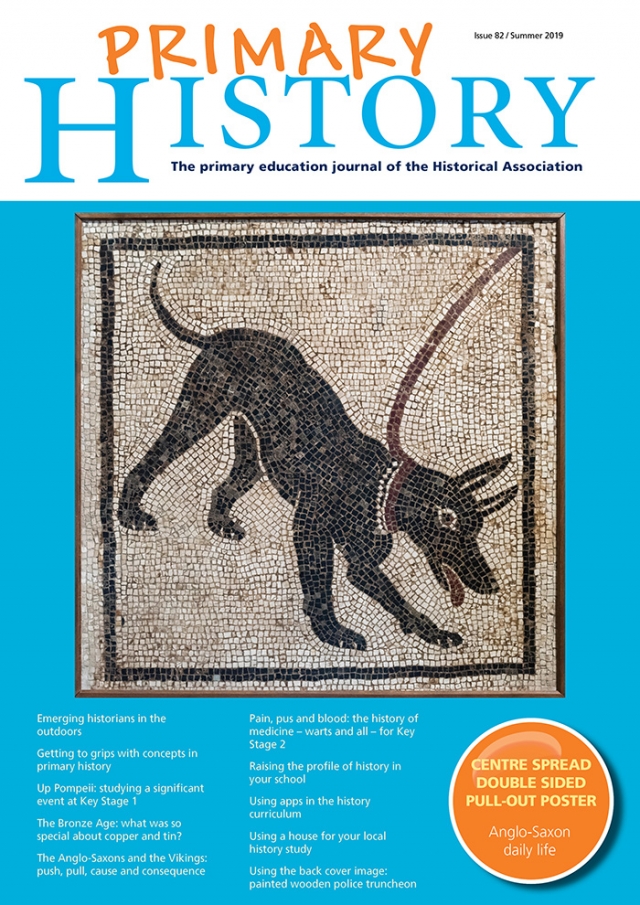Primary History 82: Out now
HA journal news

Editorial
Whenever I have the opportunity to teach history to prospective teachers I know that I will be confronted with those who bring to the session different narratives and attitudes. I am aware there will be many who enjoy history and also some who are worried about the prospect of teaching this subject. My aim is to reveal to them what an absolute joy and privilege it is to explore with children what it is to be a young historian. I also hope that during their time with me I manage to demonstrate how simple it is to make history a rich and creative subject and how enquiring about the past is a practical and interactive experience.
In Primary History 80 Tim Lomas echoes the above point when he suggests that the key to a successful article in this journal is to show how theoretical approaches are exemplified by practical ideas. As I have collated the articles for the current edition of Primary History I have been struck by the numerous instances of thought-provoking and creative historical tasks that have been included. Karin Doull’s article on the Bronze Age gives an engaging array of ideas to help bring to life this period from the long distant past. Equally, Kerry Somer and Sarah Bartlett’s article on ‘Raising the profile of history in your school’ shows how visual and engaging this subject is. Finally, if there was any doubt over the vibrancy of history, technology now helps to further ensure that the colour of the past can be brought directly into our classrooms. Glenn Carter’s contribution on ‘Using apps in the history curriculum’ details how this can be achieved when he describes the benefits of some of his favourite and most useful apps.
Recently, when watching the TED talk ‘Play is more than fun’ Stuart Brown discussed the process of play, noting that if its purpose was more important than the act of doing, then it probably wasn’t play. When teaching history there is obviously a purpose and an outcome. However, the process and the act of ‘doing history’ is just as important and also rewarding. This brings me back to my first thoughts about the enjoyment of teaching this subject for there is nothing more fulfilling for me than to see students and children engaged in the process of ‘doing history’. The processes involved in history is a theme of this journal and is discussed in depth in the article by Tim Lomas on second-order historical concepts.
I hope you enjoy, and find useful, many of the articles in this edition of Primary History and feel that you too might wish to contribute something to the journal in the future.

